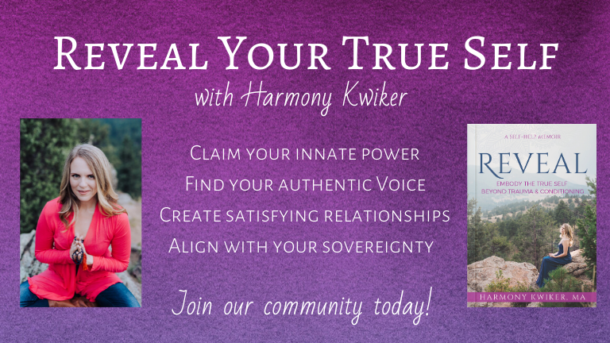In this video we are going to be diving into the topic of healthy boundaries. Boundaries are a point of contact in relationship. It’s the place where relationship happens and there’s so much confusion around the point of contact, the boundary point, and I want to offer some clarity and some support for you in recognizing the true expression of your healthy, energetic boundaries in relationship with other people.
Before we dive into that, I want to let you know that I wrote a book for you. A line living and loving from the true self is a comprehensive map of how to come back home to the truth of who you are and how to honor this deeply sacred place within yourself, as you connect with the people in your life. A line is available on Amazon and Barnes, and Noble. And I also created these self-guided alignment cards for you. There are 48 cars in this deck, and each card has a wisdom, teaching, and a sentence done to support you, and living and loving from your true self. These are wonderful for your own contemplative practice, for group therapy parties connection with the people in your life. Anybody who likes to dive deep will love these cards. These are only available on the spiritually aligned.com.
Okay, so boundaries. The most common way that I hear people talk about boundaries is in relationship to their nuttal. So this is my boundary. I’m I’m a no to this. I’m not available for this. The more people use that language to describe a boundary, boundaries are getting misunderstood as a wall or a barrier where something stops. And in truth a boundary is actually a place of meeting. It’s not a stopping point or a severing. It’s a place of meeting. It’s a point of connection, and it’s really the place where I can be in relationship with myself be in connection with myself and also be in connection with you. This is what I mean by it’s a point where relationship happens. So there are 3 types of boundaries, and the first boundary is an open boundary system, and so energetically, somebody who has an open boundary system is lacking. A sense of self. They are not very clear on what they want. what they value, what they think and they feel, what other people feel, and they can get very mixed up in their environment.
Highly sensitive, highly intuitive people who whose energy gets conflated with the energy around them. And it is very common. When somebody has an open boundary system where they haven’t yet learned how to have a healthy boundary system it’s common for them to think that that no, that rigid boundary is what a boundary is, because they live in this place of confluence of an open boundary system, and the only thing that actually has them feel connected, or to them to themselves is when they find their no. And so then they say that that no is their boundary. No, this is my boundary.
But before that no, there was a lot of missed opportunity for a true, healthy experience of a boundary. But before I get to that, I already have pointed to that second boundary system that’s common, and that is a rigid boundary system, and a lot of people walk around with a rigid boundary system, and essentially their energy is saying, I’m not going to be influenced by you. You take care of yourself. I’m going to take care of myself. I’m not going to be curious about. You have empathy for you. I’m going to be over here taking care of me, and it’s very common that somebody who has a rigid boundary system and doesn’t know how to have a healthy boundary system, is very scared that if they start to open they’re going to go into that open system where they have no defenses, where they have no sense of self, where they feel so vulnerable. And so they hold on to this rigid where they’re keeping other people out, and they’re keeping themselves in. And they really are living behind this self-protection of a wall.
So again, somebody with an open boundary system, who doesn’t know how to honor their sense of self will rebound to a rigid boundary system where there is a stern wall. They’re keeping other people out, and people with a rigid boundary system hold on to that wall of self protection because they’re very scared that they’re going to be so vulnerable and open if they let go of that energy of that rigid wall.
So the third type of boundary, which is the healthiest expression of a boundary is called a flexible boundary or a healthy boundary system and when we have a healthy boundary system, we can actually contact life from a sense of presence. where we know what we think, what we value, how it feels to be us separate from the people around us. We know what we want, and we can make choices of how to engage with the world from our mature, wise, sovereign self, not in reaction against, without seeing the world through a veil of projection where we’re assigning what we feel onto other people, and we want them to stop what they’re doing. So we don’t feel, though, what we feel right. It’s a projection we’re in our own experience where we’re available for ourselves, and the more available we are for ourselves, the more regulated and aware we are, which actually creates a toned, healthy, energetic boundary.
And the more our boundary system is toned because we’re a regulate, we’re regulated, we are in contact with ourselves, and we’re seeing the world around us clearly, not through the veil of projections. We are curious about what other people think, how other people feel, what other people want, and we don’t need our experience or desire to be the same as other people’s experience or desire, in order to be in connection and in contact. And it’s actually true that we can have differing desires and differing values, and navigate that contact boundary point consciously and lovingly, and meet one another at the boundary. It’s not a wall. I’m not going to put up a wall just because you think differently than me, because you want something differently than me. I’m actually going to honor myself and I’m going to honor you as your own sovereign being. I’m going to trust that if I make a request, which is often what people mean when they say this is my boundary. If I make a request of you, and I say I’d like you to not call me at this time, because I’m going to be prioritizing my work. Let’s just say I make that bound. I make that request and the other person calls or texts. During that time they haven’t violated my boundary. They simply haven’t honored the request. And so now we get to be with that consciously. And I get to be curious about this this other person, who said that they would make a request, and that didn’t honor that they said that they would they would.
They would value what I wanted. But then they didn’t actually honor that, and they did something else, anyways. And so now I get to be curious about this person who I’m in relationship with and what’s happening with them, and how I’m impacted by that, we get to navigate that consciously and cleanly. Oftentimes, when somebody wants a a rigid boundary, it’s because the people in their life are either trying to regulate off of them. So they’re trying to get energy from them so that they can regulate, or they are discharging energy onto them like anger or something. And the person doesn’t know how to allow that to be the other person’s experience, and it makes its way into their energy field if they have an open boundary system, and so they try to put up a wall to keep it out.
But when we have a healthy, toned, energetic boundary. other people behave the way other people behave, and we get to be at full choice about how we want to show up for ourselves how we want to honor, how we’re impacted in that relationship. If we want to stay engaged in that relationship, there’s more choice involved in the experience of meeting at the boundary point. So again, to summarize a boundary is not a wall. It isn’t a rigid. No, that doesn’t mean that a boundary doesn’t include.
I know, right? A boundary could very much say I’m not available for this dynamic, and then I remove myself from that dynamic. But it isn’t in reaction against that person. It’s in full honoring of the truth of my being the full honoring of the truth of our essential being, and knowing what it is that we need what we want, what we value, and meeting the environment from this deep place of presence.
One place in which boundaries start to league where a person starts to violate their own boundary is when they feel responsible for other people. So somebody else wants something, and if I feel responsible to give it to them, I start to violate my own boundary, and I’m not seeing them as a sovereign person, and I’m not meeting them from the truth of who I am, and the boundary starts to leak and I start engaging with other people as if I’m responsible for them. And then I don’t like what’s happening, and I find a rigid. Now this is the most common way. People violate their own boundary system. They give their power away to other people, and then they resent them for it, and they try to cut them out.
And this is an expression of their attachment wound. It’s a younger part of themselves that they don’t even realize they’re projecting on to these other people in their life. And so a healthy, energetic boundary requires our own awareness that we’re a secure base for ourself, that we know what we want, that we’re available for ourself, that we hold ourselves in our experience, that we are really updated into the mature, wise, whole human, that we are, so that we can see other people for who they are without our patterns, getting in the way of our connection.
And so with that, I want to let you know that I have some courses available for you. One course is living your alignment, which will support you and flourishing in all areas of your life. And then there’s also a course called spiritually aligned relationship, and you can learn so much more in this course. And then, if you are a therapist or a coach, and you want to facilitate your clients into coming back home to the truth of who they are, and holding their the clarity of their energetic boundaries. I have many courses for you on my website, the spiritually aligned Com. I’m wishing you so much beauty and grace as you navigate the contact boundary in all of your relationships.


